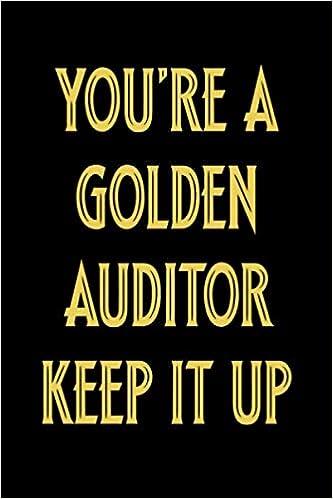Accounting Cycle Problem: The John Marshall Company, Inc., which provides consulting services to major utility companies, was formed on January 2 of this year. Transactions
Accounting Cycle Problem:
The John Marshall Company, Inc., which provides consulting services to major utility companies, was formed on January 2 of this year. Transactions completed during the first year of operation were as follows:
January 2 Issued 600,000 shares of stock for $10,500,000.
January 10 Acquired equipment in exchange for $2,500,000 cash and a $5,000,000 note payable. The note is due in ten years.
February 1 Paid $12,000 for a business insurance policy covering the two-year period beginning on February 1.
February 22 Purchased $950,000 of supplies on account
March 1 Paid wages of $185,600
March 23 Billed $2,820,000 for services rendered on account
April 1 Paid $110,000 of the amount due on the supplies purchased February 22.
April 17 Collected $240,000 of the accounts receivable
May 1 Paid wages of $200,400.
May 8 Received and paid bill for $96,000 for utilities.
May 24 Paid $43,000 for sales commissions.
June 1 Made the first payment of 250,000 on the note issued January 10. The payment consisted of $50,000 interest and $200,000 applied against the principal of the note.
June 16 Billed customers for $550,000 of services rendered.
June 30 Collected $320,000 on accounts receivable.
July 10 Purchased $150,000 of supplies on account.
August 25 Paid $155,000 for administrative expenses.
September 23 Paid $31,000 for warehouse repairs.
October 1 Paid general wages of $91,000.
November 20 Purchased supplies for $62,000 cash.
December 15 Collected $145,000 in advance for services to be provided in December and January.
December 30 Declared and paid a $55,000 dividend to shareholders.
The chart of accounts that Marshall Company, Inc. uses is as follows:
Assets:
101 Cash
102 Accounts receivable
103 Supplies
104 Prepaid insurance
110 Equipment
112 Accumulated depreciation
Liabilities:
201 Accounts payable
202 Unearned service revenue
203 Wages payable
210 Interest payable
220 Notes payable
Stockholders Equity:
301 Common stock
310 Retained earnings
320 Dividends
Revenues:
401 Service revenue
Expenses:
501 Wage expense
502 Utility expense
503 Selling expense
504 Administrative expense
505 Repairs expense
506 Insurance expense
507 Supplies expense
510 Depreciation expense
520 Interest expense
Other:
601 Income summary
REQUIRED: Utilizing the information provided above, complete the following steps in an Excel workbook (Template provided):
- Journalize the transactions for the year.
- Post the journal entries to a T account.
- Prepare an unadjusted trial balance as of December 31.
- Journalize and post adjusting entries to the T accounts based on the following additional information:
- Eleven months of the insurance policy expired by the end of the year.
- Depreciation for equipment is $400,000.
- The company provided $90,000 of services related to the advance collection of December 15.
- There are $535,000 of supplies on hand at the end of the year.
- An additional $175,000 of interest has accrued on the note by the end of the year.
- Marshall accrued wages of $205,000 at the end of the ear.
- Prepare an adjusted trial balance as of December 31.
- Prepare a single-step income statement and statement of retained earnings for the year ended December 31 and a classified balance sheet as of December 31.
- Journalize and post the closing entries
- Prepare a post-closing trial balance as of December 31.
Step by Step Solution
There are 3 Steps involved in it
Step: 1

See step-by-step solutions with expert insights and AI powered tools for academic success
Step: 2

Step: 3

Ace Your Homework with AI
Get the answers you need in no time with our AI-driven, step-by-step assistance
Get Started


